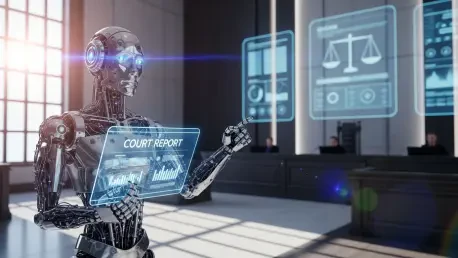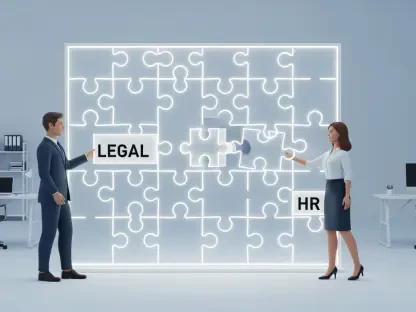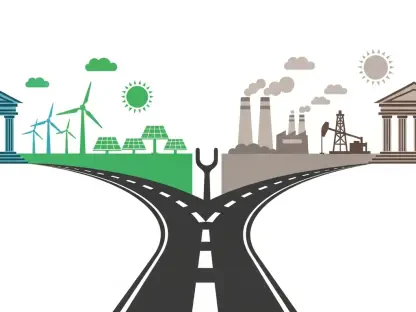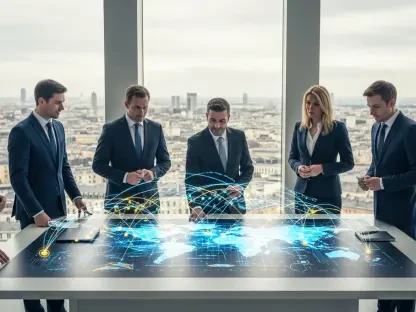As we dive into the intersection of technology and legal ethics, I’m thrilled to sit down with Desiree Sainthrope, a renowned legal expert with a wealth of experience in drafting and analyzing trade agreements. Her expertise extends to global compliance, intellectual property, and the rapidly evolving role of technologies like AI in the legal field. Today, we’ll explore the ethical implications and practical challenges of using AI in crafting expert reports for court proceedings, the potential risks to judicial integrity, and how the legal system might adapt to ensure trust and fairness in this digital age.
How do you view the growing use of AI tools, such as language models, in drafting expert reports for court?
I think AI can be a double-edged sword in this context. On one hand, these tools can streamline certain tasks, like organizing data or formatting complex documents, which saves time and reduces human error. However, when it comes to the substantive content—forming opinions, analyzing evidence, or drawing conclusions—relying on AI is incredibly risky. Expert reports are meant to reflect the unique judgment and expertise of a qualified individual, and AI simply can’t replicate that personal accountability or nuanced understanding. There’s also the issue of bias in AI outputs, which could subtly skew a report without the expert even realizing it.
In what ways might AI be helpful for the more technical or structural aspects of preparing a report?
AI can be quite useful for the nuts and bolts of report preparation. For instance, it can assist with formatting to meet specific court requirements, ensuring consistent numbering of paragraphs or creating clear, professional layouts. It can also help compile large volumes of data into readable charts or summaries, which is especially handy in technical fields like engineering or finance. These are areas where precision and clarity matter, but the expert’s core opinion isn’t being outsourced to a machine. It’s about efficiency, not substitution.
What are some of the major risks you see when AI is used to generate content or opinions in these reports?
The risks are significant. First, AI-generated content might not be accurate or contextually appropriate—it often pulls from broad datasets that may not align with the specific facts of a case. Second, there’s a lack of accountability; if an AI produces a flawed opinion, who takes responsibility? The expert signing off on it is still on the hook, but they might not even fully understand what the AI did. Lastly, it undermines the court’s trust. Judges and juries rely on expert reports to be the genuine, impartial work of a human mind, not a computer algorithm that could be manipulated or misinterpreted.
Why do you think submitting an AI-generated report as an expert’s own work could be seen as a serious ethical violation?
It’s a gross breach of duty because it violates the fundamental principle that an expert’s role is to provide independent, personal insight to assist the court. When you pass off AI work as your own, you’re essentially misleading the court about the source of the analysis and opinions. This isn’t just a technicality—it’s a betrayal of the trust placed in experts to be transparent and accountable. Courts depend on that integrity to make informed decisions, and faking it with AI erodes the entire process.
How might this practice impact the fairness of a trial or the judge’s ruling?
It can severely compromise fairness. If a report contains AI-generated errors or biases that aren’t caught, it could lead to a judge or jury basing their decision on flawed information. Even if the content is technically correct, the lack of human judgment means the report might miss critical nuances specific to the case, skewing the outcome. Worse, it creates an uneven playing field—if one side uses AI to churn out polished reports without proper scrutiny, it disadvantages parties who rely on genuine expertise, undermining the adversarial balance of a trial.
Should there be specific consequences for experts caught using AI without disclosure, and if so, what might they look like?
Absolutely, there should be consequences to deter this behavior. These could range from professional sanctions, like reprimands or suspensions by licensing bodies, to courtroom penalties, such as having the report struck from evidence or even facing contempt charges in extreme cases. The severity should depend on intent and impact—did the expert knowingly deceive, and did it affect the case? The goal isn’t just punishment; it’s to reinforce that transparency is non-negotiable in legal proceedings.
Do you believe judges should routinely ask experts whether AI was used in preparing their reports?
Yes, I think it’s a sensible precaution. Asking the question upfront sets a clear expectation of honesty and forces experts to think twice before using AI covertly. It also helps maintain public confidence in the judicial process by showing that courts are proactive about addressing emerging technologies. While it’s not a perfect solution—some might still lie—it’s a step toward accountability and opens the door for further scrutiny if something seems off.
What challenges do you think courts face in detecting whether a report was written by a human or generated by AI?
Detecting AI involvement is tricky. Unlike plagiarism, where you can match text to existing sources, AI-generated content is often original, so there’s no direct fingerprint. Some clues might be overly formulaic language or a lack of personal tone, but those are subjective and easy to edit out. Judges and lawyers aren’t typically trained to spot these nuances, and even if they suspect something, proving it is another hurdle. Right now, we lack reliable forensic tools for this, and developing them would take time and resources.
How can legal systems adapt to ensure that expert reports remain trustworthy in an era where AI is so accessible?
Adaptation starts with education and policy. Experts need training on the ethical boundaries of using AI, emphasizing that it’s a tool for support, not a replacement for their judgment. Courts should also establish clear guidelines or rules requiring disclosure of any AI assistance, no matter how minor. Additionally, fostering a culture of transparency—perhaps through sworn declarations about the report’s creation—can help. It’s about striking a balance: embracing technology’s benefits while safeguarding the human element that’s core to justice.
What is your forecast for how AI’s role in legal proceedings, particularly with expert reports, might evolve over the next decade?
I believe AI will become more integrated into legal workflows, but I hope it’s with strict guardrails. We might see specialized AI tools designed for legal use, with built-in transparency features to log their contributions. Courts could also adopt verification processes or even appoint tech-savvy auditors to review reports for AI involvement. However, the ethical debate will likely intensify as AI gets smarter—there’ll be pressure to define what ‘human expertise’ really means in a world where machines can mimic it so convincingly. I think the next decade will be about finding that line and holding it firmly.









